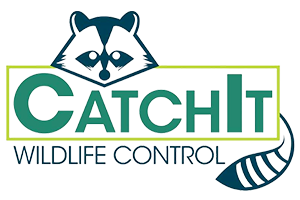The Downside Of The Endearing Chipmunk
The Destruction Caused by Chipmunks
At CatchIt Wildlife, we understand the charm of chipmunks, with their adorable faces, big eyes, and striped bodies, they might seem like harmless, even cute, additions to your backyard, darting across the landscape of Central Illinois. Their antics can be delightful, but there's a hidden reality to these creatures that residents should be aware of. These furry critters can become quite a nuisance – and they can even be dangerous. Let’s expose the not-so-cute side of chipmunks and the problems they cause.
They Aren't Just Cute, They're Destructive
They may look harmless, but their digging habits and hoarding instincts can wreak havoc on your property. Chipmunks might be small, but they're mighty diggers! Their complex burrow systems can extend up to 30 feet in length and several feet deep, often branching out in multiple directions. These underground networks pose a serious risk to structures on your property. The tunnels can undermine patios, walkways, and even the foundations of sheds and your home, leading to cracks and instability. Over time, this hidden network of tunnels can cause costly damage as the ground shifts and settles. Additionally, chipmunks love to gnaw, and their sharp teeth can cause damage to siding, wires, and anything else they can get their hands on. They'll raid gardens, nibbling on plants and crops, and their stashing habits can lead to unsightly piles of debris around your property.
Disease Carriers
Chipmunks can carry several diseases dangerous to humans and pets. One of the most serious is rabies, a potentially fatal viral infection that can be transmitted through bites. They can also harbor salmonella bacteria, which leads to food poisoning when ingested by humans. Additionally, while less common, they can carry hantavirus, a respiratory illness that can have severe consequences. It's essential to remember that even seemingly healthy animals might carry these diseases, posing a health risk to you and your pets.
Ectoparasites like ticks, fleas, and mites find chipmunks to be perfect hosts. Once attached, these parasites can spread Lyme disease, Rocky Mountain spotted fever, and other serious illnesses to humans and pets. The cycle of transmission is a complex web, with chipmunks at the center, unknowingly facilitating the spread of these diseases.
Why They Don't Make Good Pets
The term Chipmunk is derived from the Ojibwe word "ajidamoon," meaning "red squirrel." These animals are known for their large appetites, storing food in cheek pouches that expand to three times their head size. They undergo torpor, a deep sleep state, rather than full hibernation, to conserve energy during winter. In popular culture, Disney's Chip and Dale are chipmunk characters, introducing humor and adventure, further highlighting the chipmunk's appeal beyond natural behavior.
Chipmunks are primarily solitary animals, which makes them less noticeable when they start to invade your space. Their diet is varied, including seeds, nuts, fruits, and occasionally small insects, which can lead to them raiding your garden or bird feeders. Their cheek pouches, which allow them to transport food back to their burrows, are an adaptation that aids in their survival but also in their ability to cause havoc.
While it might be tempting to adopt one of these seemingly cuddly creatures, they make terrible pets. A frightened animal can quickly resort to those sharp teeth, delivering bites that can be surprisingly painful and may even get infected. Replicating their natural, complex burrowing environment is virtually impossible in captivity, leading to stressed and unhappy chipmunks. Additionally, they are incredibly agile escape artists, and once they break out of their cages, catching them again is no easy task.
DIY=DI-Don’t
Attempting to remove them by yourself can lead to various problems. First, without proper knowledge and tools, it's easy to cause harm to both the animal and the person attempting removal. Although small, they can bite or scratch when threatened. Moreover, many regions have specific wildlife protection laws, making self-removal illegal without a permit. There's also the risk of inadvertently damaging property or creating unintended entry points for other pests during the removal process. Professional wildlife control services understand their habits and ecology, ensuring responsible, legal, and humane removal while preventing future infestations. They can also provide advice on how to chipmunk-proof a property, addressing the root of the problem rather than just the symptoms.
Understanding the risks are the first step. Securing your home against these creatures involves sealing potential entry points and ensuring food sources, like bird seed or pet food, are securely stored. Regular yard maintenance, such as clearing debris and trimming back overgrown vegetation, can also deter them from settling in.
If chipmunks are wreaking havoc in your yard or home, it's time to call in the professionals. At CatchIt Wildlife, we are experts in responsibly and humanely removing them and other nuisance wildlife. We can also work with you to prevent future infestations by helping you chipmunk-proof your property. After all, as fascinating as they are, chipmunks are best enjoyed from a distance.
Our trained and qualified specialists can implement control measures and help you create barriers to keep these critters out for good. Don't let chipmunks take over your property and potentially put your health at risk! If you're struggling with an invasion,
contact us to request an estimate.
900 Commerce Place
Suite 1001
Forsyth, IL 62535
CatchIt Wildlife Control


